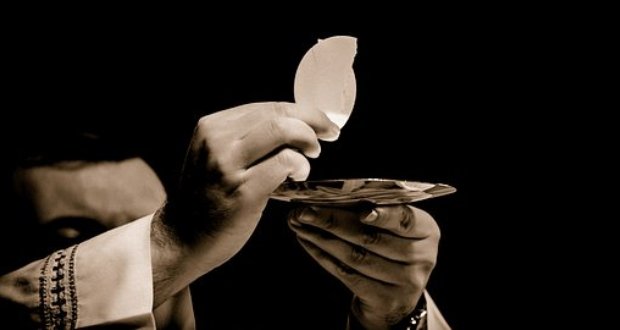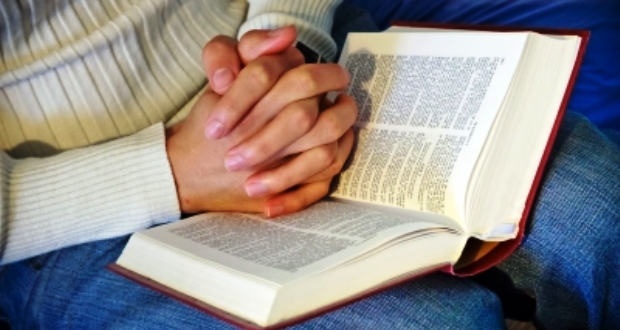Is The Eucharist Just a Symbol Or Is It The Body And Blood Of Jesus?

Question: I was chatting with some of my friends
who are Protestants, and we were talking about the Eucharist. I was pointing out
to them that the Eucharist is really the Body and Blood of Jesus Christ. I even
pointed them to John Chapter 6, but they said that Jesus was not speaking
literally and that the Eucharist is only a representation or a symbol of Jesus.
What else can I tell them?
ANSWER: Many Protestants – if not all of them – struggle with John
Chapter 6 and with the Catholic Church’s teachings and belief in the Eucharist.
Protestants believe that Jesus was not speaking literally and that he was
speaking, maybe in parables as he usually did. But if you carefully read that
chapter (John ch 6), you cannot help but realize that Jesus had several
opportunities to clarify the situation and to explain himself, but he did not.
Each time he was challenged by his listeners about what he said, instead of
backing out and saying something like, ‘I did not mean that literally’, he went
deeper into what he was saying. Till it eventually got to the point that many
walked away from him saying, “This is intolerable language!”
Also, there have been several times in the Bible, where after a parable or a
teaching, Jesus would call those closest to him away, and explain the parable or
the teaching. He did not do that in this instance. In fact, he tuned to the
twelve and asked, “what about you? Will you also leave?” And Peter responded,
“Lord, to whom shall we go? You have the message of eternal life, and we
believe; and have come to know that you are the Holy One of God.”
All of the early Christians believed that the Eucharist was/is the real presence
of Jesus Christ, including St. Paul, in 1 Corinthians 10:15-17. Here, St.
Paul uses the plainest language available to say, “The cup of blessing which we
bless, is it not a partaking of the blood of Christ? And the bread which we
break, is it not a partaking of the body of Christ?” And then 1 Corinthians
11:27-29, “If you eat the bread or drink the cup unworthily, you are guilty of
the body and blood of the Lord.” There is no ambiguity here! This is plain
language. St Paul continues, “So let a man examine himself to see whether he’s
in the faith, because if a person eats the bread of the Lord or drink the cup
unworthily, they eat and drink condemnation to themselves, because they did not
recognize the body of the Lord.”
The language that Paul uses there is about as plain as day. It doesn’t get
clearer than that. He believed that it was really the body of the Lord Jesus
Christ. Notice he didn’t say: “Jesus actually meant ‘This represents my body.’
No! No! He said: “because they did not recognize the body of the Lord.”
An added point here is that from the very earliest Christian
documents that exists, the Catholic Church’s teaching on the Eucharist has
always been professed and believed and lived among early Christians.
Examples of such writings are those written by St. Ignatius of Antioch, who in
his letter to the Smyrnians, wrote, “The heretics – they abstain from the
Eucharist and from prayer because they deny that the Eucharist is the flesh of
our Lord and Savior Jesus Christ, the same flesh which suffered for all our
salvation.”
So the earliest Christians believed it as well. It was not until a long time
into the future, that we find people who did not believe. So to conclude, why
would I accept the word of anyone, over that of Jesus Christ, or St. Paul, or
over St. Ignatius of Antioch, and all Christians, basically for the first 1500
years of the Christian era? The Eucharist is what the Catholic Church says
and teaches that it is – the Body and the Blood of our Lord and Savior, Jesus
Christ.





